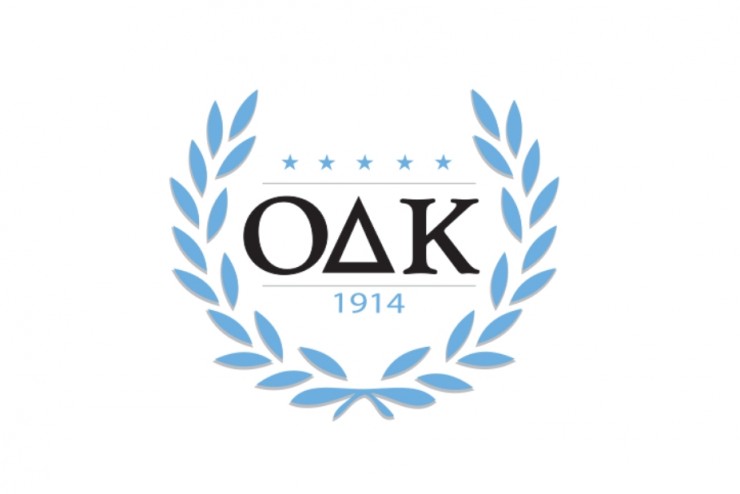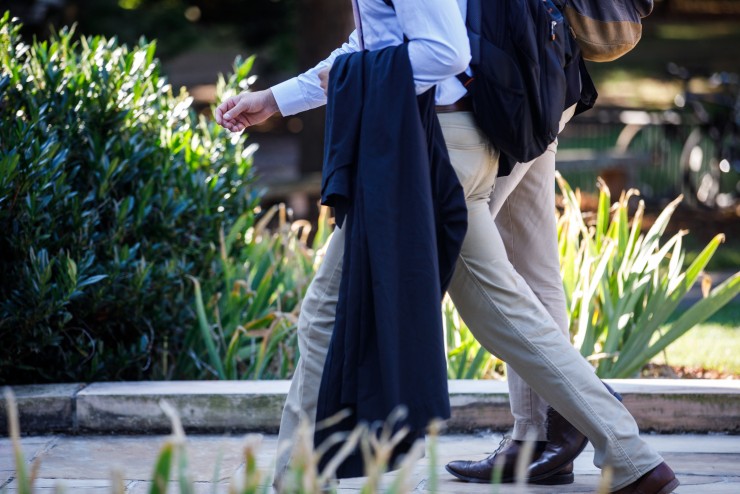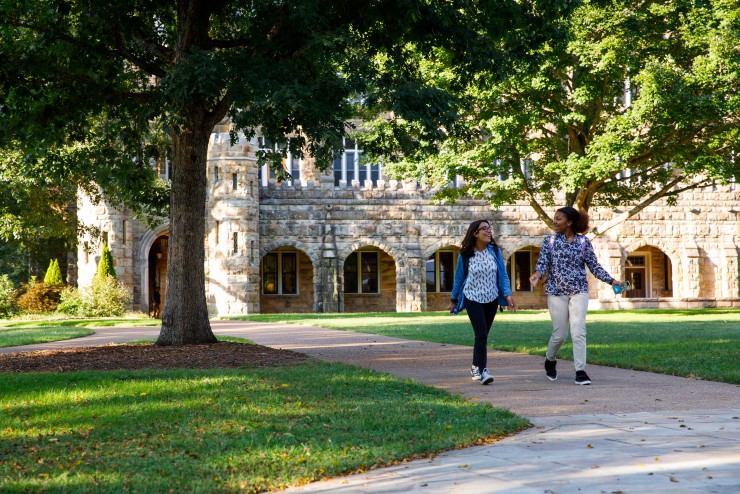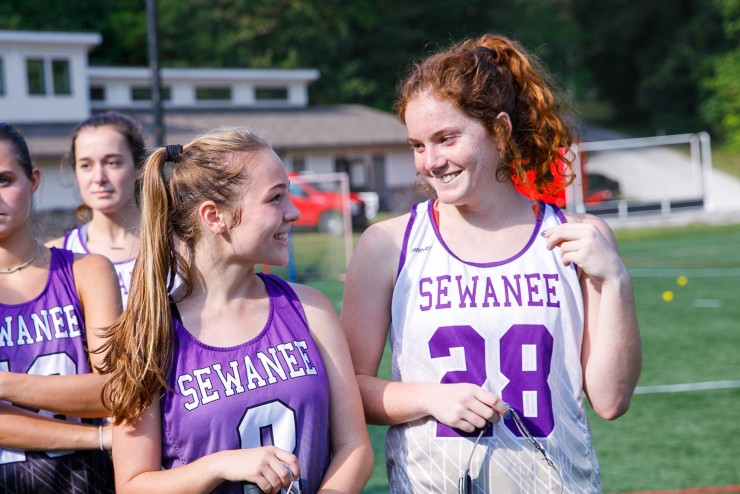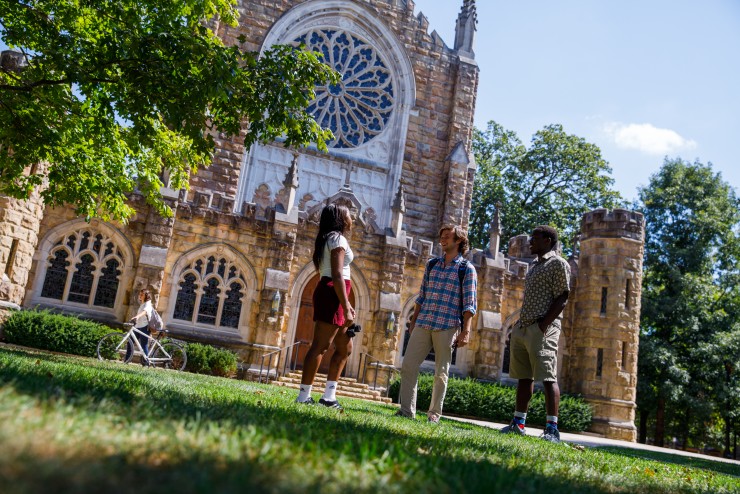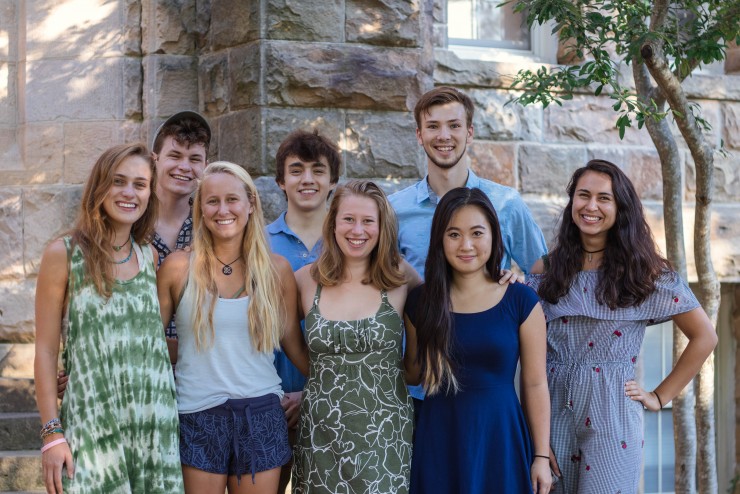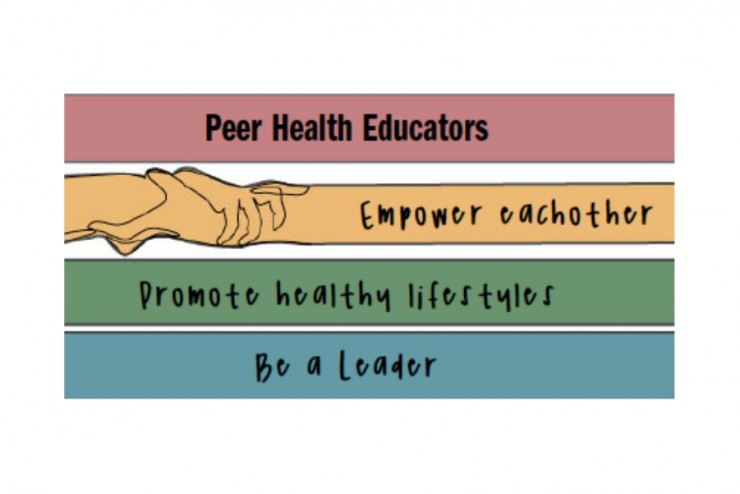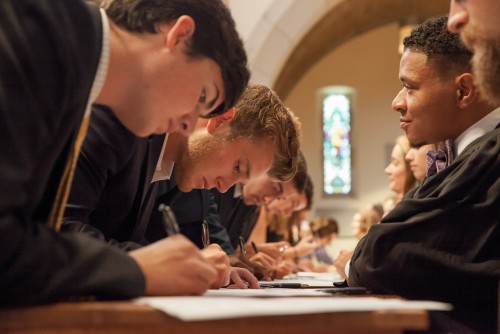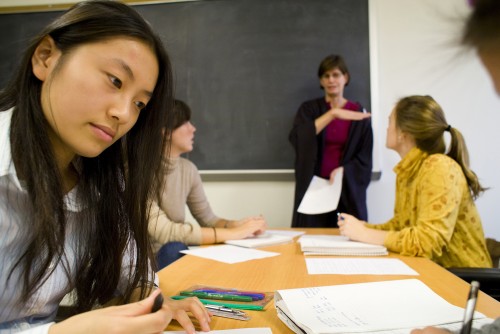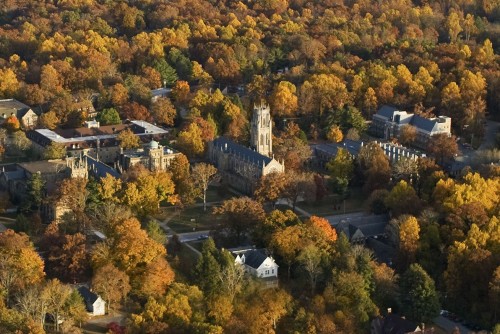At Sewanee, students have so many opportunities to be involved in short- and long-term leadership roles and programs. With more than 100 significant leadership roles on campus, students are leading their peers and influencing University programs and services.
Students lead their peers in so many important roles on campus. From Head Proctors to leaders in the Student Government Association, students have a chance to make significant decisions and impact on campus. Students serve as peer leaders in Orientation, the Sewanee Outing Program, Athletics, and in the Residence Halls. Students lead the way in our sustainability efforts, on athletic teams, and in our more than 100 student organizations.

